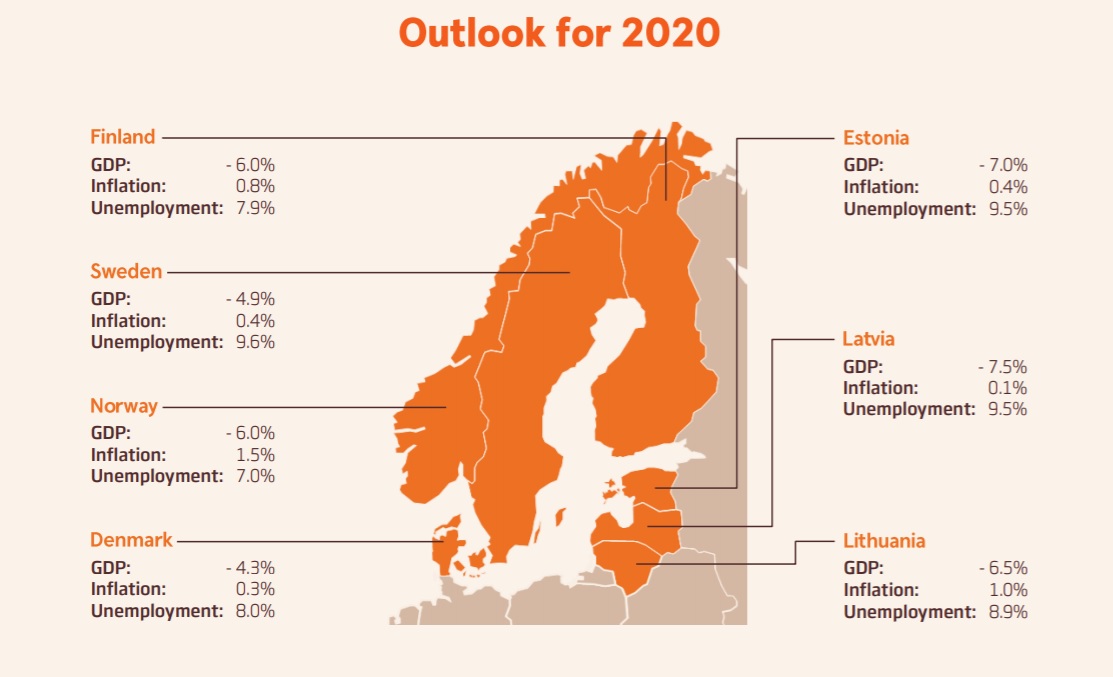For Latvia, that means an economic contraction of around 7.5% and unemployment of just under 10%, according to the latest data.
"With the coronavirus hitting the services sector in March, economic activity in Latvia declined by 1.4% annually in the first quarter of 2020, following an already unimpressive performance in 2019. This can partly be explained by factors that have been pulling down growth in the recent past, like the fall in transit cargoes and the contracting financial sector due to structural changes," said Swedbank.
"The strongest correction is to come in the second quarter, with data on export expectations suggesting that the already-weak manufacturing sector has been hard hit. As the virus containment measures are slowly being lifted, the economy will start a rather slow recovery in the second half of the year. Overall, GDP is expected to contract by 7.5% this year and recover by only 4.3% in 2021."
"A marked rise in the unemployment rate was observed in April, but the effects would have been more dramatic if not for the furlough benefits. The unemployment rate is expected to jump to 9.5% in 2020, peaking at 11% in the third quarter and then gradually easing, averaging 8.5% in 2021," Swedbank predicted.
However, according to Swedbank the Baltic countries are "in a less awkward position" than many economies and are unlikely to suffer more than the rest of the euro area. All three Baltic countries (Latvia, Estonia and Lithuania) entered this crisis with balanced economies and unlike southern European countries, the Baltics are less dependent on the tourism sector, which is likely to suffer the most this year.
"The Baltic countries have managed to avoid the worst of the pandemic – the virus spread was quickly contained, and lockdowns have been milder and shorter," Swedbank said.
The full report is available to read online and a comparison of the various strategies adopted by the Nordic and Baltic countries makes for interesting reading.






























